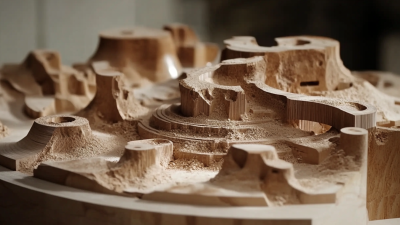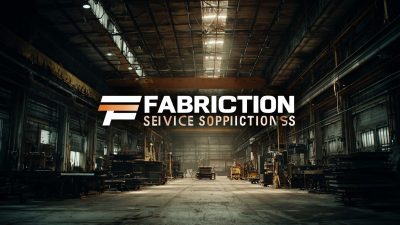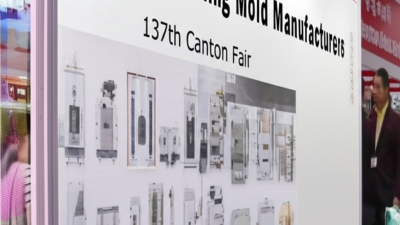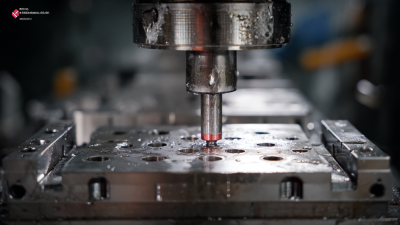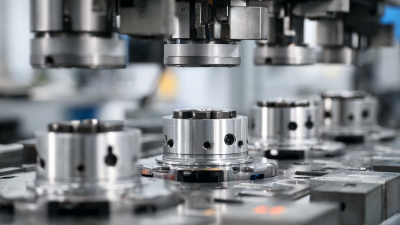In the competitive landscape of manufacturing, choosing the right metal mold manufacturer can significantly influence product quality and operational efficiency. According to a recent report by Market Research Future, the global metal machining market is projected to reach approximately $350 billion by 2026, reflecting a growing demand for precision engineering and high-quality molds. As industries increasingly rely on advanced tooling technology, identifying manufacturers that possess essential qualities becomes crucial. These qualities not only ensure better lead times and reduced costs but also enhance innovation and product performance.

In this blog, we will explore seven essential qualities that define the best metal mold manufacturers, helping businesses make informed decisions that align with their production needs and market goals.
When evaluating the expertise of a metal mold manufacturer, it is essential to focus on several key factors that reflect their capabilities and commitment to quality. One of the primary considerations should be their adoption of advanced technologies, such as Metal Injection Molding (MIM) and Metal 3D printing. These techniques not only enhance design flexibility but also cater to the increasing demand for sustainable production practices in various industries. A manufacturer proficient in these areas demonstrates an ability to innovate and adapt to market trends, ensuring they can meet the evolving needs of customers while minimizing environmental impact.
Additionally, a strong emphasis on sustainability and the implementation of non-hazardous processes play a crucial role in assessing a manufacturer's reliability. Companies that prioritize beneficial reuse opportunities and invest in reclamation technologies are more likely to produce environmentally friendly products without compromising on quality. The combination of superior mold design, efficient manufacturing processes, and commitment to sustainability makes for a reputable metal mold manufacturer capable of delivering high-performance solutions tailored to the specific requirements of their clients.
In today's rapidly evolving manufacturing landscape, the significance of advanced technology in mold manufacturing cannot be overstated. According to a report by MarketsandMarkets, the global mold manufacturing market is expected to reach $8.73 billion by 2025, driven by innovations in automation and cutting-edge technologies. This growth underscores the necessity for metal mold manufacturers to invest in advanced machinery, such as CNC machining and 3D printing, which enhance precision and reduce production time.

Furthermore, embracing smart technologies like Industry 4.0 is crucial for metal mold manufacturers looking to remain competitive. A survey from Deloitte indicates that companies integrating smart manufacturing practices have seen productivity increases of up to 30% and substantial cost savings. With the adoption of IoT and machine learning, manufacturers can optimize processes and predict maintenance needs, leading to better operational efficiency and product quality. Ultimately, the best metal mold manufacturers leverage these technological advancements to not only meet client demands but also to drive innovation in their processes, ensuring they stay at the forefront of the industry.
Assessing material quality is critical for manufacturers aiming to produce durable metal molds, particularly in today's rapidly evolving landscape of production technologies. The use of advanced materials, such as low-cost, multi-material, polymeric 3D printed molds, has shown promising results, as highlighted by recent studies analyzing their manufacturing processes. These evaluations are essential, especially when they compare mold surface geometry before and after smoothing processes. Manufacturers must ensure that the choices of materials not only meet production efficiency but also maintain integrity throughout the mold lifecycle.
Sustainability has emerged as a key focus in the metal molding industry. For example, a study on the production of adaptive sand mold structures emphasizes the importance of integrating sustainable practices into 3D printed sand casting. This not only meets the environmental challenges but also enhances the functionality of the molds being produced. Moreover, the exploration of polymer-based binder materials in metal injection molding reveals significant advancements in the sector, supporting the ongoing transition towards greener production technologies. The incorporation of sustainable metrics into manufacturing processes signifies a shift towards prioritizing not just efficiency but also environmental responsibility in mold production.

In the metal mold industry, evaluating customer service and support can significantly impact a company's success. Research shows that manufacturers with strong customer support see a 20% increase in repeat business, according to the "2023 Customer Experience in Manufacturing" report by the Manufacturing Institute. This highlights the importance of responsive communication and effective problem resolution, which are essential for maintaining lasting client relationships.
When choosing a metal mold manufacturer, clients should look for companies that provide comprehensive support throughout the production process. A rapid response time to inquiries can indicate a commitment to customer satisfaction. Additionally, manufacturers that offer after-sales support, such as maintenance resources or troubleshooting assistance, are often more reliable.
**Tip:** Always inquire about the manufacturer’s customer service metrics, such as average response times and customer satisfaction scores.
Moreover, personalized service is a valuable trait. Manufacturers that invest time in understanding client-specific needs often yield better outcomes. This relationship-building approach not only fosters trust but also enhances product quality through collaborative feedback.
**Tip:** A good practice is to request case studies or testimonials from past clients to gauge the manufacturer’s capability in providing tailored support.
This bar chart displays the essential qualities evaluated in the metal mold manufacturing industry, along with their importance ratings.
When evaluating the best metal mold manufacturers, one of the crucial aspects to consider is their production capacity and turnaround times. Efficient production not only affects your project timelines but also impacts the overall cost and quality of the end product. A reliable manufacturer should offer flexibility in their production capabilities, ensuring they can scale up or down based on your specific needs.
Tip: Request detailed production schedules from potential manufacturers to assess their timelines. Understanding their workflow and how they manage peak demands can give you insights into their efficiency.
Furthermore, turnaround times are vital for maintaining momentum in your project. A manufacturer that can deliver quickly without compromising quality can provide a significant competitive edge. It’s worth discussing their processes, from design to delivery, to identify any potential bottlenecks.
Tip: Consider manufacturers that use advanced technologies and techniques, such as automation and real-time tracking systems, which can drastically enhance production speed and reliability. This proactive approach not only streamlines operations but also allows for better communication and adjustments throughout the manufacturing process.

